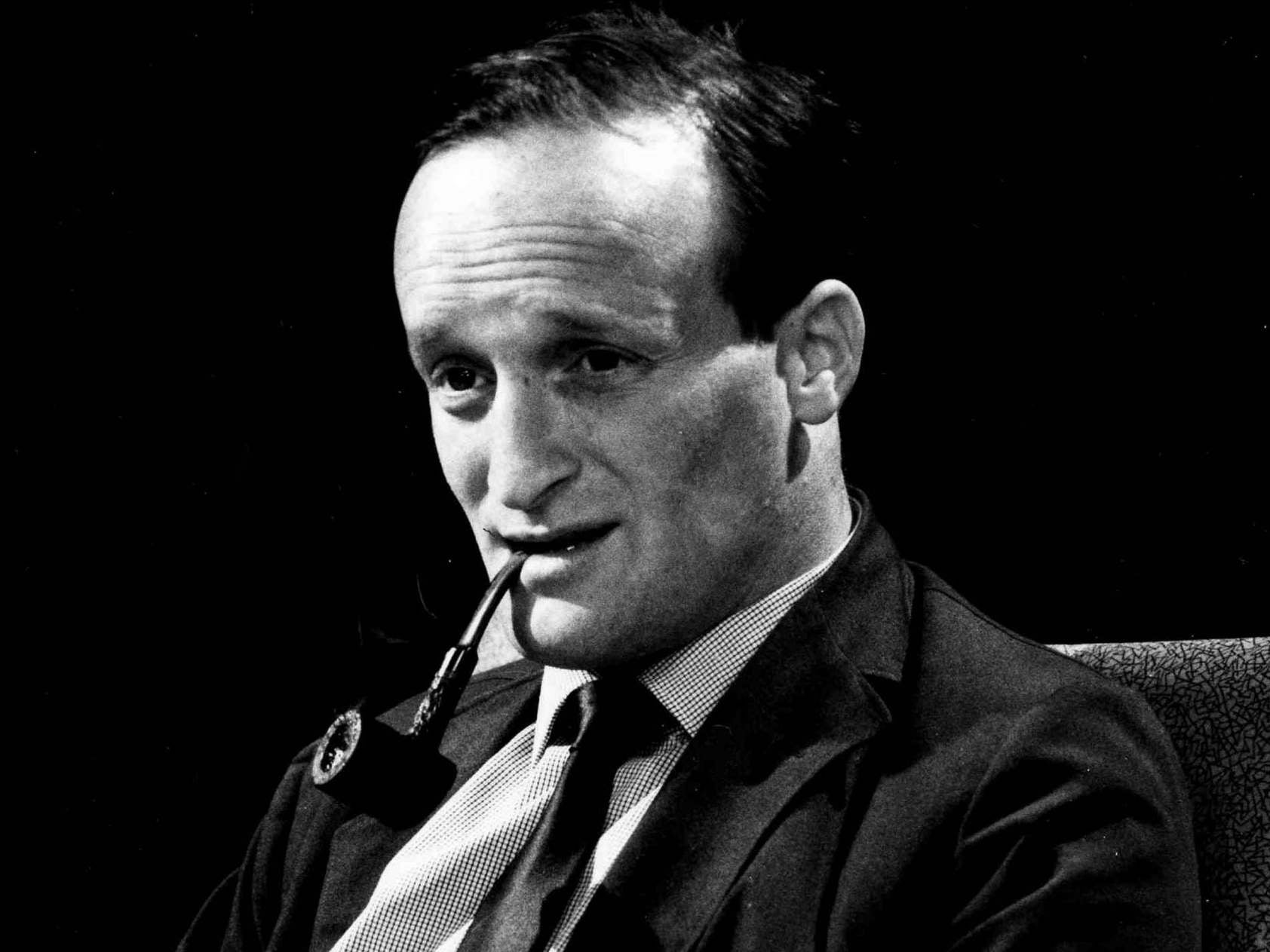Al Alvarez: Poet and editor who championed Larkin, Hughes and Plath
He edited a landmark poetry anthology and his own work evinced a stark beauty

Your support helps us to tell the story
From reproductive rights to climate change to Big Tech, The Independent is on the ground when the story is developing. Whether it's investigating the financials of Elon Musk's pro-Trump PAC or producing our latest documentary, 'The A Word', which shines a light on the American women fighting for reproductive rights, we know how important it is to parse out the facts from the messaging.
At such a critical moment in US history, we need reporters on the ground. Your donation allows us to keep sending journalists to speak to both sides of the story.
The Independent is trusted by Americans across the entire political spectrum. And unlike many other quality news outlets, we choose not to lock Americans out of our reporting and analysis with paywalls. We believe quality journalism should be available to everyone, paid for by those who can afford it.
Your support makes all the difference.Al Alvarez, who has died aged 90, was a writer, poet and editor who dedicated his life to literature in Britain and the US.
Alvarez was born in Hampstead, north London, in 1929, to Katie and Bertie Alvarez, a dressmaker. He grew up in London and in Hove, East Sussex, where his family was evacuated during the war. He attended Oundle School in Northamptonshire, excelling in both the academic subjects and in sport. In 1949 he went up to Corpus Christi College, Oxford, on a scholarship to read English.
After time at Princeton University and the University of New Mexico, as a DH Lawrence fellow, he could have continued on the safe path of academia – instead he chose the rocky road of the writer.
In 1956 Alvarez was appointed poetry editor of The Observer. Over the next decade he was instrumental in promoting the evolution of a new group of poets, the Movement writers, including Philip Larkin and Kingsley Amis, taking over from the old guard and their stifling gentility. It was around this time that he became friends with Ted Hughes and Sylvia Plath. He recalled: “I think I was around at a really important period in English poetry, when Ted, Sylvia, these people were really making a real difference.”
The anthology The New Poetry (1962), edited by Alvarez, represented a milestone in British and American literature, distilling the best of the poets who had made their reputation since the war. Significantly, the volume included three previously unpublished poems by Plath, who took her own life the following year.
In his book The Savage God (1972), which tells of his own experience of living through severe depression, Alvarez sees Plath’s suicide as an unanswered cry for help. Interviewed later, he regretted being unable to offer more emotional support, saying: “I failed her on that level”.
Alvarez had begun writing poetry at Corpus Christi. His own poems are short, sparsely crafted objects of beauty. For example, in “The Survivor” (1960):
Only the skull is left, the last hard fact
That turns in my hands, in my blood, under my skin,
Pacing my life like a traveller who taps
The earth and cries ‘Dear mother, let me in’.
He observed of his poetic craft: “The thing about a poem is that you’ve got to get it right. And you’ve got to get it all right. If there’s one word wrong, then the whole thing won’t work. It can be a 500-line or five-line poem, it doesn’t matter. You get stuck on that word that isn’t right. You know the poem isn’t going to be finished until it all clicks into place.”
That quest for perfection drove Alvarez in his other great loves, rock climbing and poker. Feeding the Rat (1988) is both an account of a gnawing craving for adventure and a biography of the great mountaineer, Mo Anthoine, with whom Alvarez had climbed frequently. Among the anecdotes a dramatic near-death experience stands out, a literal cliff-hanger which sees the two climbers trapped on the north face of Cima Grande di Lavaredo in freezing conditions. Anthoine’s quiet optimism, resilience and good humour ensured that they survived the night.
For Alvarez, poker was a thrill on a par with rock climbing and became the subject of The Biggest Game in Town (1983) and Poker: Bets, Bluffs and Bad Beats (2001). Writing on the Las Vegas world of high-stakes poker, Alvarez notes wryly: “The next best thing to playing and winning is playing and losing.”
In his 1999 autobiography, Where Did It All Go Right?, he summarised his approach to literature and his wider life: “I adore what you can do with language. But I’ve always worked on the supposition that I’m only going to have one go at this planet and I just want to try what’s on offer. I’ve used writing as a way of financing doing stuff. Effectively I’m broke, but if I drop dead this minute I’ve had a terrific time.”
He is survived by his second wife Anne Adams and two children. A son from his first marriage predeceased him.
Al Alvarez, writer, poet and editor, born 5 August 1929, died 23 September 2019
Join our commenting forum
Join thought-provoking conversations, follow other Independent readers and see their replies
Comments